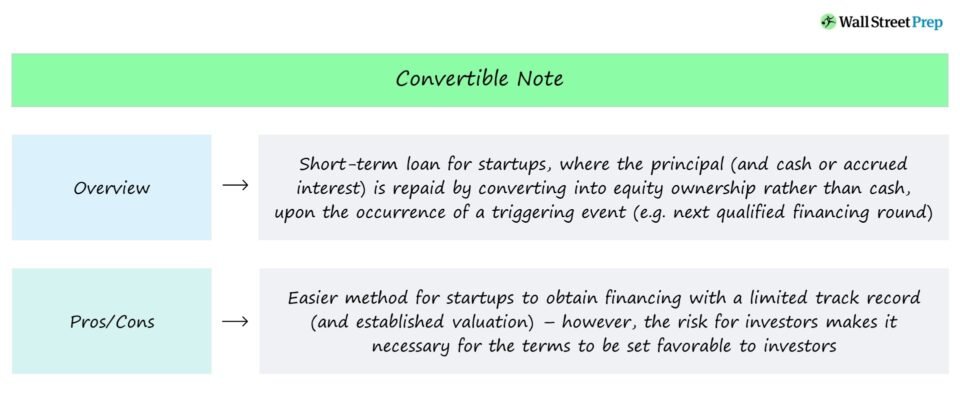Budgeting for seasonal income fluctuations can be a challenging task for many individuals. But worry not, as this article will provide you with practical tips on how to effectively manage your finances despite the ups and downs of seasonal income. By implementing these strategies, you will gain the confidence and stability needed to navigate through the peaks and valleys of your income, ensuring a secure financial future. So, if you’ve ever wondered how to budget for seasonal income fluctuations, keep reading to discover the secrets to financial success.
How to Budget for Seasonal Income Fluctuations
Seasonal income fluctuations can present unique challenges when it comes to budgeting. Whether you work in a seasonal industry or experience irregular income throughout the year, it’s crucial to plan your finances carefully to navigate these fluctuations successfully. In this article, we will explore effective strategies and practical tips to help you budget for seasonal income fluctuations and maintain financial stability.
The Importance of Budgeting for Seasonal Income
Budgeting for seasonal income fluctuations is vital for several reasons. It provides a clear roadmap for managing your expenses, helps you prepare for lean times, and allows you to make the most of your high-income periods. By implementing a well-thought-out budget, you can:
- Ensure your financial stability throughout the year
- Reduce stress related to money management
- Make strategic financial decisions and investments
- Accomplish your short-term and long-term financial goals
- Prepare for unexpected expenses
Assessing and Analyzing Your Income Patterns
Before creating a budget, it’s essential to assess and analyze your income patterns thoroughly. This step will help you understand your earning potential, identify seasonal trends, and determine how to allocate your income effectively. Here’s how you can do it:
1. Review Past Income Data
Retrieve your past income records, such as pay stubs, invoices, or financial statements. Look for patterns and trends in your earnings over the years. Pay attention to months or seasons when your income increases or decreases significantly.
2. Identify Seasonal Fluctuations
Analyzing your income data will likely reveal seasonal fluctuations. Take note of the months or seasons when your income is typically higher or lower than average. Understanding these patterns will help you plan your budget more effectively.
3. Estimate Worst-Case Scenarios
While it’s crucial to anticipate high-income periods, it’s equally important to prepare for worst-case scenarios. Estimate the minimum income you can expect during low seasons and plan your budget based on this conservative estimate. This approach will ensure you have sufficient funds to cover your basic expenses even during lean months.
4. Consider Future Growth and Opportunities
As you evaluate your income patterns, also consider potential growth and new opportunities in your industry. If you expect your income to increase in the future or have plans to explore new avenues, incorporate this into your budgeting strategy. Having a realistic view of your income potential will help you make informed financial decisions.
Creating a Seasonal Budget
Now that you have a thorough understanding of your income patterns, it’s time to create a seasonal budget. A seasonal budget allows you to allocate your income and expenses based on your specific circumstances throughout the year. Here are the key steps to create an effective seasonal budget:
1. Determine Fixed and Variable Expenses
Start by categorizing your expenses into fixed and variable categories. Fixed expenses are those that remain relatively constant throughout the year, such as rent or mortgage payments, insurance premiums, and loan repayments. Variable expenses, on the other hand, can fluctuate from month to month, such as groceries, utility bills, and entertainment expenses.
2. Prioritize Essential Expenses
When you have a seasonal income, it’s crucial to prioritize essential expenses to ensure you can cover them even during lean times. These may include housing, utilities, groceries, transportation, and debt payments. Make sure to allocate enough funds to cover these expenses in your budget.
3. Allocate Funds for Seasonal Fluctuations
Based on your analysis of income patterns and worst-case scenarios, allocate funds specifically for seasonal fluctuations. During high-income periods, set aside a portion of your earnings to build a reserve that can sustain you during low-income months. This will help you level out your cash flow and avoid financial stress.
4. Create Emergency and Contingency Funds
In addition to budgeting for seasonal fluctuations, it’s crucial to establish emergency and contingency funds. These funds act as a safety net during unexpected events, such as medical emergencies or car repairs. Aim to save three to six months’ worth of living expenses in an easily accessible account.
5. Consider Income Diversification
If possible, explore opportunities to diversify your income sources. This can help mitigate the impact of seasonal fluctuations by providing alternative revenue streams during lean times. For example, if you work in a seasonal industry, consider taking up side gigs or freelancing projects during off-peak periods.
Monitoring and Adjusting Your Seasonal Budget
Creating a seasonal budget is not a one-time task. It requires regular monitoring and adjustments to ensure its effectiveness. Here are some essential steps to monitor and fine-tune your budget:
1. Track Your Income and Expenses
Keep a record of your income and expenses throughout the year. This will help you identify any discrepancies, track your progress, and make informed decisions when adjusting your budget.
2. Review Your Budget Regularly
Set aside time periodically to review your budget and assess its effectiveness. Analyze your actual income and expenses compared to your budgeted amounts. Identify areas where you may have overspent or underutilized your funds. This evaluation will help you make necessary adjustments.
3. Adjust Budget Categories as Needed
If you consistently overspend in certain categories or find that you have surplus funds in others, consider adjusting your budget allocations. Flexibility is key when budgeting for seasonal income fluctuations. Be prepared to reallocate funds as needed to reflect changes in your income patterns or financial goals.
4. Seek Professional Advice if Necessary
If you find it challenging to create or manage a seasonal budget, consider seeking advice from a financial professional. They can provide personalized guidance tailored to your specific circumstances and help you optimize your budget for seasonal income fluctuations.
Additional Tips for Budgeting with Seasonal Income
In addition to the strategies mentioned above, here are a few more tips to help you budget effectively with seasonal income:
- Build a strong emergency fund to cover unexpected expenses
- Reduce unnecessary expenses during low-income periods
- Implement a cash flow management system to track your income and expenses
- Consider using budgeting apps or tools to simplify the process
- Explore income stabilization programs or grants available for individuals with seasonal income
- Network with professionals in your industry to gain insights and explore new opportunities
- Take advantage of high-income periods to pay off debts or invest in long-term financial goals
Budgeting for seasonal income fluctuations is crucial for maintaining financial stability and achieving your financial goals. By understanding your income patterns, creating a seasonal budget, and regularly monitoring and adjusting your finances, you can navigate the challenges of irregular income successfully. Remember to prioritize essential expenses, build emergency funds, and consider income diversification to safeguard against lean times. With careful planning and disciplined budgeting practices, you can confidently manage your finances throughout the year.
How Do I Budget When My Income Fluctuates?
Frequently Asked Questions
Frequently Asked Questions (FAQs)
How can I budget for seasonal income fluctuations?
When budgeting for seasonal income fluctuations, consider the following tips:
What are some strategies to manage irregular income?
To manage irregular income, you can implement the following strategies:
Is it important to create an emergency fund when dealing with seasonal income fluctuations?
Yes, it is crucial to have an emergency fund in place to handle any unexpected expenses during periods of lower income.
What steps can I take to reduce expenses during slow seasons?
To reduce expenses during slow seasons, you can:
Should I consider a side job to supplement my seasonal income?
Yes, taking on a side job can be a good way to supplement your income during slow seasons.
How can I plan ahead to prepare for seasonal income fluctuations?
To plan ahead for seasonal income fluctuations, you can:
Are there any budgeting apps or tools that can help me manage my income fluctuations?
Yes, there are various budgeting apps and tools available that can assist you in managing your income fluctuations. Some popular ones include:
What are the advantages of using a zero-based budgeting approach when dealing with seasonal income fluctuations?
With a zero-based budgeting approach, you assign every dollar a specific purpose, which can be particularly helpful when dealing with irregular income. This method allows you to:
Final Thoughts
One of the most effective ways to navigate seasonal income fluctuations is by creating a budget that accounts for these changes. By setting aside funds during high-earning periods and planning for leaner times, you can ensure financial stability throughout the year. Start by tracking your income and expenses, identifying patterns and trends. Next, prioritize your spending and establish savings goals. Consider utilizing budgeting tools or apps to streamline the process. Regularly review and adjust your budget as needed to stay on track. Finally, remember to maintain disciplined spending habits and avoid unnecessary debt. With a proactive approach to budgeting for seasonal income fluctuations, financial success is within reach.



